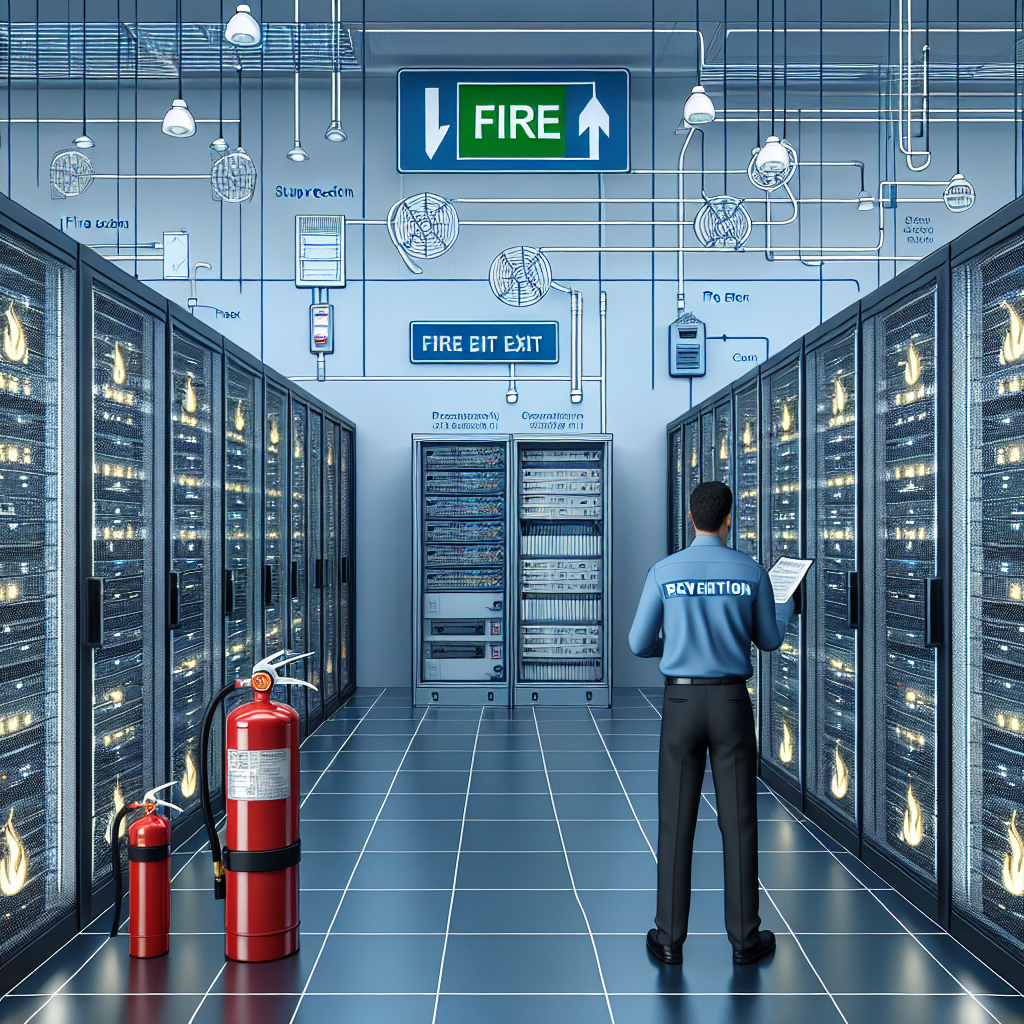Data centers play a crucial role in our modern society, housing the servers and equipment that store and process vast amounts of data. With so much valuable information stored in these facilities, fire safety is a top priority to ensure the protection of both the data and the employees working in the data center.
Prevention is key when it comes to fire safety in data centers. Implementing best practices for prevention can help reduce the risk of fire and minimize potential damage. Here are some tips for preventing fires in data centers:
1. Regular maintenance: Regularly inspecting and maintaining electrical equipment is crucial in preventing fires. Loose connections, overloaded circuits, and other electrical issues can lead to electrical fires. Make sure to schedule routine inspections and maintenance of all electrical equipment in the data center.
2. Proper storage: Keep flammable materials away from electrical equipment and ensure that all materials are stored in designated areas. Avoid clutter and keep aisles and walkways clear to prevent potential fire hazards.
3. Temperature control: Maintain proper temperature and humidity levels in the data center to prevent overheating of equipment. Install fire suppression systems such as automatic sprinklers and fire alarms to quickly detect and suppress fires.
4. Training and education: Train employees on fire safety protocols and procedures, including how to respond in case of a fire. Conduct regular fire drills to ensure that all employees are prepared in the event of an emergency.
In addition to prevention, having effective fire suppression systems in place is crucial for ensuring the safety of a data center. Here are some best practices for fire suppression in data centers:
1. Automatic sprinkler systems: Automatic sprinkler systems are a common and effective method of fire suppression in data centers. These systems can quickly detect and suppress fires, helping to prevent damage to equipment and data.
2. Clean agent suppression systems: Clean agent suppression systems use gases or chemicals to suppress fires without causing damage to equipment or data. These systems are ideal for data centers where water-based suppression systems may not be suitable.
3. Fire detection systems: Install fire detection systems such as smoke detectors and heat sensors to quickly detect fires and alert employees to evacuate the data center. These systems can help minimize damage and prevent injuries in the event of a fire.
4. Regular testing and maintenance: Regularly test and maintain fire suppression systems to ensure they are in proper working order. Conduct routine inspections and testing of all systems to ensure they are functioning correctly.
In conclusion, fire safety is a critical aspect of maintaining the security and integrity of data centers. By implementing best practices for prevention and suppression, data center operators can reduce the risk of fires and ensure the safety of their employees and equipment. Regular maintenance, proper storage, temperature control, training, and effective fire suppression systems are key components of a comprehensive fire safety plan for data centers. Remember, prevention is always better than cure when it comes to fire safety.


Leave a Reply